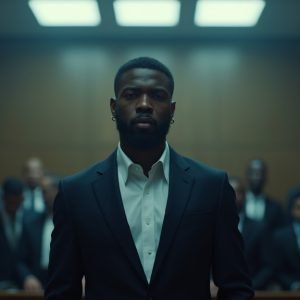Freddie Gibbs, a highly respected voice in contemporary hip-hop, has issued a stark warning about the increasing reliance on Artificial Intelligence (AI) for lyric writing among artists, asserting that such practices signify a decline in genuine artistry. In a candid conversation with Ryen Russillo on The Ringer podcast, the acclaimed rapper expressed his disdain for musicians who delegate their creative process to algorithms, lamenting that “art is dying” in such a “lazy day and age.”
Gibbs’s potent critique stems from personal observation. He revealed that he has personally witnessed fellow artists in studio sessions actively using AI tools, such as ChatGPT, to generate their verses. This practice, according to Gibbs, undermines the fundamental essence of hip-hop, a genre often built on lyrical prowess, authentic storytelling, and the artist’s unique perspective.
“Look at AI rap now, man,” Gibbs stated during the podcast, his words resonating with frustration. “I don’t even believe nobody that writes… I don’t even believe if you even really make it anymore because I done been in studios with motherfuckers and motherfuckers is ChatGPT-ing shit and I’m like, ‘What the fuck?'” He questioned the long-term viability of his own career in a landscape where the craft of songwriting is increasingly outsourced to machines, adding, “How long am I gonna be able to do this shit? ‘Cause I’m actually making fresh shit. We in a lazy day and age, man. Art is dying and you got to ask a computer to write your lyrics — shit is wack.”
Gibbs’s sentiments reflect a growing unease within the music industry about the burgeoning role of AI in creative processes. AI-powered tools are rapidly advancing, capable of generating not only lyrics but also melodies, chord progressions, and even entire musical compositions. Platforms like Amper Music, AIVA, MuseNet, and Jukedeck are examples of technologies that can assist songwriters by providing inspiration, overcoming creative blocks, and streamlining production. Proponents argue these tools can enhance efficiency and unlock new creative avenues.
However, the rapid integration of AI into music creation is not without controversy, particularly within the hip-hop community. The proliferation of AI-generated rap covers and even fully AI-powered rappers has raised significant questions about authenticity, copyright, and the very definition of artistic creation. Viral tracks mimicking the voices and styles of major artists like Drake and The Weeknd have garnered millions of views, sparking debate about intellectual property and the ethical implications of using an artist’s likeness without consent. Legal experts note that current copyright laws are struggling to keep pace with these technological advancements, creating a complex and often uncertain landscape for artists and rights holders.
The discussion around AI in music is multifaceted. While Gibbs decries its use as a shortcut that dilutes artistic integrity, other figures in the industry hold different views. Producer Timbaland, for instance, has suggested that AI might be essential for infusing soul into modern music, contrasting it with what he perceives as a loss of genuine emotion in the current cultural climate. Younger artists, like newcomer BabyChiefDoIt, have openly admitted to using AI tools like ChatGPT to assist in their lyric writing, drawing both curiosity and criticism from fans who feel it bypasses essential developmental stages for an artist.
Gibbs’s stance is deeply rooted in his own artistic journey and philosophy. Known for his gritty, authentic storytelling and meticulous craft, Gibbs has often drawn inspiration from legends like Scarface and 50 Cent, artists whose music was characterized by raw narratives, personal struggle, and an unwavering commitment to their truth. His own discography, including critically acclaimed albums like “Alfredo” and “Piñata,” frequently explores complex social issues and personal experiences, demanding a level of introspection and genuine expression that Gibbs believes AI cannot replicate. For him, the act of writing lyrics is a difficult, emotional process, a reflection of lived reality, not a mere output from a program.
The core of Gibbs’s concern lies in the potential erosion of the human element in music. He fears that as AI tools become more sophisticated and accessible, the value placed on original thought, emotional depth, and the unique struggle inherent in human creation will diminish. This sentiment is echoed by many who believe that the connection between an artist and their audience is built on shared human experience, something that an algorithm, however advanced, cannot truly embody.
The debate surrounding AI in hip-hop and broader music circles is far from settled. It pits the allure of technological innovation and efficiency against the time-honored values of authentic artistry and human creativity. As the industry navigates this new frontier, Freddie Gibbs’s passionate plea serves as a critical reminder of the potential consequences of prioritizing convenience over craft, sparking vital conversations about the future of music and what it truly means to be an artist in the digital age. The top stories in music continue to highlight this evolving relationship, leaving many to ponder whether AI will be a collaborative partner or a harbinger of art’s decline.

























